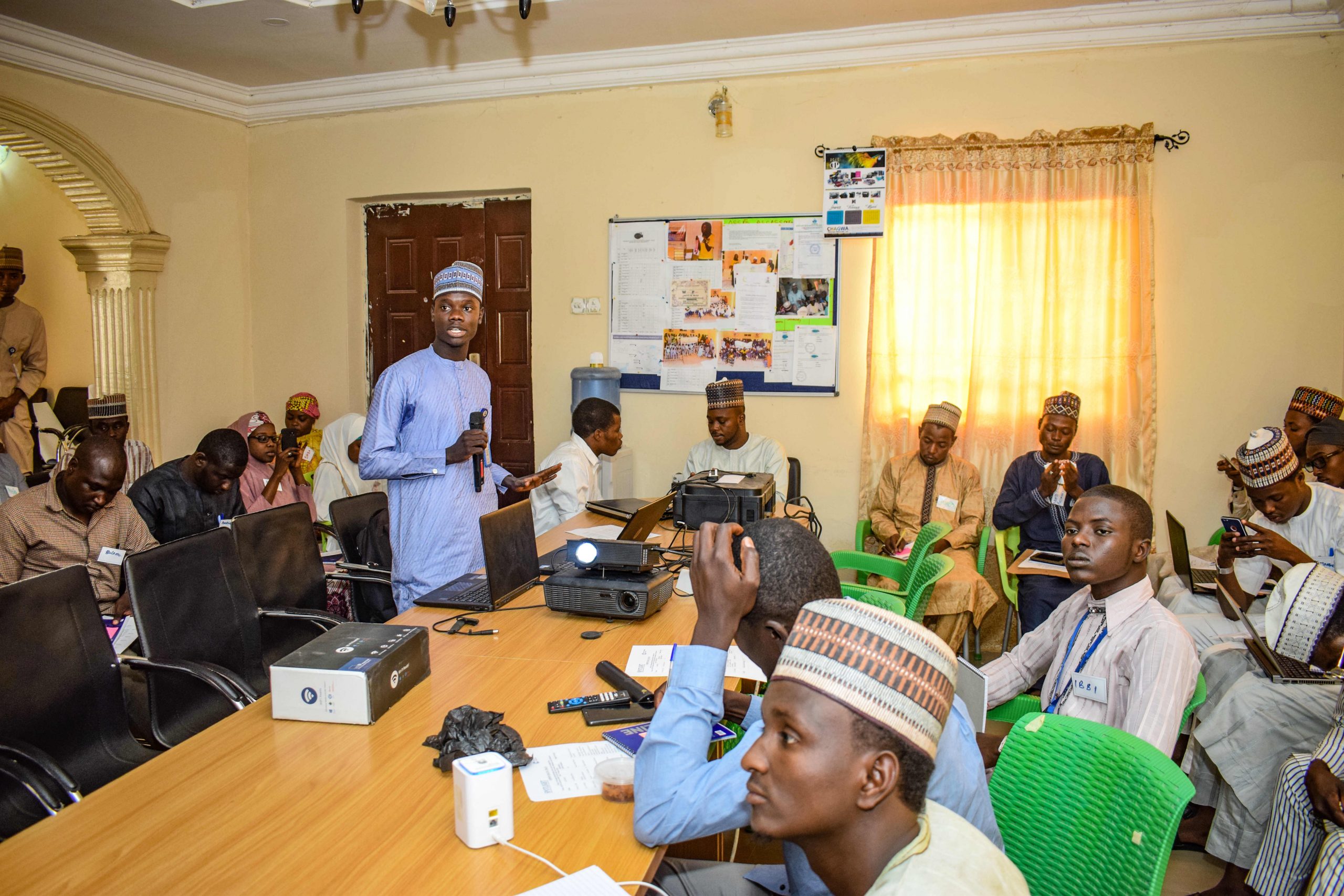On Saturday 7th March 2020, the tenth Open Data Day took place with people around the world organising over 300 events to celebrate, promote and spread the use of open data. Thanks to generous support from key funders, the Open Knowledge Foundation was able to support the running of more than 60 of these events via our mini-grants scheme.
This blogpost is a report by Muazu Alhaji Modu from Spotlight for Transparency and Accountability Initiative in Nigeria who received funding from Hivos to host an event to increase understanding of and access to local budget data.
Despite the fact that Yobe State is one of the states in the north-east region of Nigeria most devastated by the Boko Haram insurgency for over a decade now, it is still a frontrunner in the open data and governance space in the region and the country at large.
Aside from national mechanisms for promoting open data such as the Open Government Partnership and Freedom of Information Act (FOIA) 2011, the Yobe State government has put in place numerous commitments to open data to enhance access to data as well as strengthening accountability and transparency. These include: the enactment of public financial management law; public procurement law; fiscal responsibility law; and the use of the public financial management website to ensure that the state follows International Public Sector Accounting Standards and uses the Open Contracting Data Standard. However despite all these laws and mechanisms put in place, citizen knowledge of open data, governance and public finance management is inadequate in the state.
60 participants were selected from 365 young people and civil society members who applied to join our Open Data Day capacity-building workshop to empower them with a basic understanding of open data and public financial management to demand for accountability and increase access to information.
The workshop kicked off by tracing the origins of the FOIA. Prior to this event, participants were asked if they had knowledge of the FOIA and how they can leverage the legal framework to ask policy makers for information and demand transparency and accountability but many reported that they were unaware of the powers of the act.
The participants got to know how open data can strengthen democratic governance and how democracy gave birth to the FOIA in Nigeria because there was no provision for citizens to access information or ask how government spent monies. The advent of democracy has done away with the secrecy clauses prohibiting the disclosure of information and the facilitator explained in clear terms that there is a law backing freedom of information where citizens can write formally to ministries, departments and agencies to be given data for them not only to track government spending also other information they need to know.
Muhammad Bukar then lead a session on budget processes and budget analysis. The budget cycle including budget planning, enactment, execution, oversight and how to access budget and other public financial documents was intensively discussed and the participants were amazed as to how the budget cycle works. Aisha Umar Farouq followed this by taking participants through how citizens can independently track government spending using the Follow The Money model.
Finally, Dr. Hauwa made a mind-boggling presentation on how big data can help us move Nigeria as a nation and improve the development of the information age. Moreover, she called on those youths who graced the occasion to actively participate in meetings held by policy makers to ensure their needs and aspirations are well captured in the state’s policy direction so they are not left out. She also called on budding young people to pay more attention and seek more knowledge on issues surrounding governance, transparency and accountability to fight the scourge of high-level corruption that is threatening to bring Nigeria to its knees.
The participants left with cheers and thanks for the gathering that gave them much insight on contemporary issues which they wouldn’t have known if not for the Open Data Day event hosted by Spotlight for Transparency and Accountability with support from the Open Knowledge Foundation.










